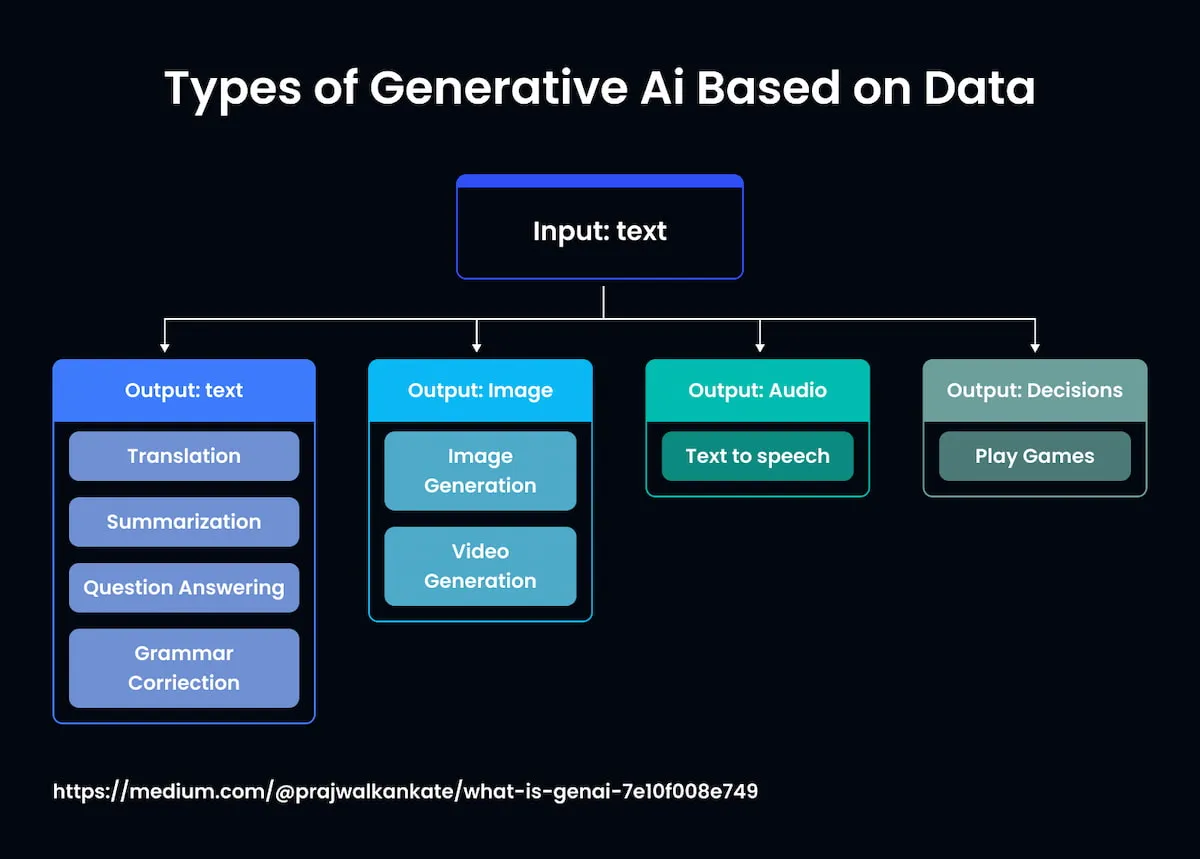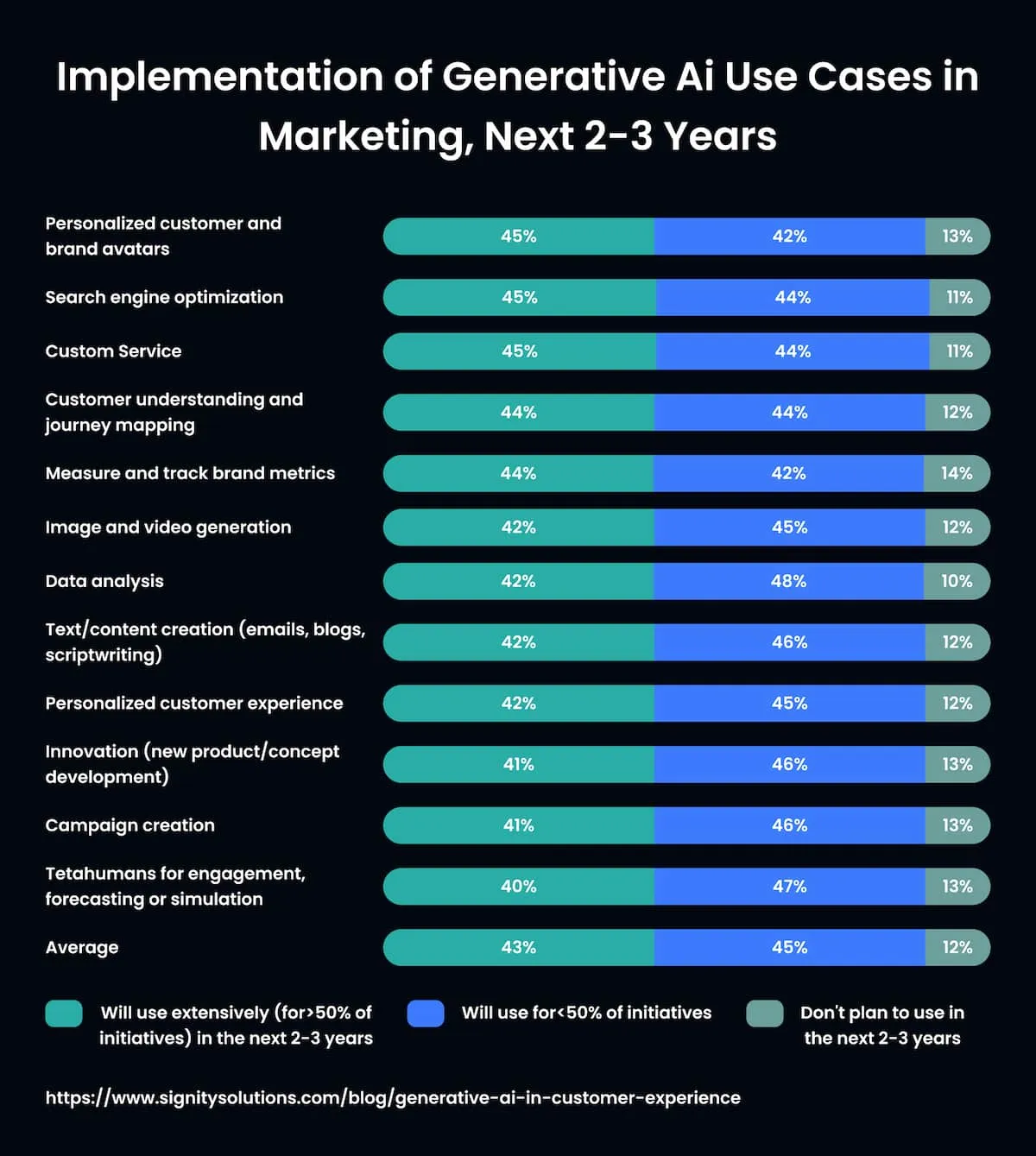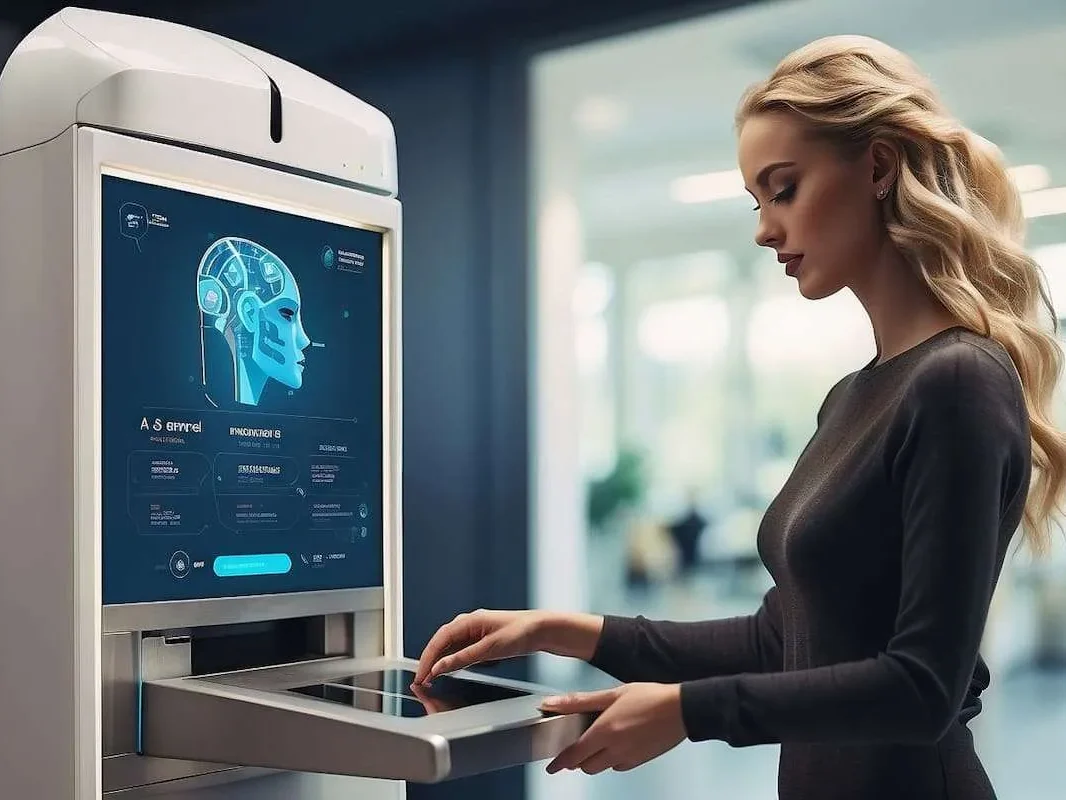Today’s customers demand a service experience that is both responsive and proactive, with communication tailored to their specific needs. Artificial intelligence customer experience facilitates this paradigm shift in client service interactions. This technology fosters a new environment characterized by exceptional responsiveness, proactive issue resolution, and, ultimately, a more delightful customer journey. Today, let’s touch on the unique benefits of genAI and how you can adopt generative AI customer experience in your business.
The Definition of GenAI
GenAI is a category of artificial intelligence that produces brand-new content. It creates new data samples similar to the datasets utilized in training. Such tools explore patterns and functions based on the input database and can develop content with common features.
GenAI composes text, pictures, and music, imitating human creativity to varying degrees. The company’s most popular app is genAI’s ChatGPT. It was trained on a colossal quantity of data to understand and correctly interpret human language features.
The ChatGPT framework that works with this vast data collection is the large language model (LLM).

LLMs are highly sophisticated AI-backed systems that enable human language understanding, generation, and manipulation. These fundamental structures can generate coherent and persuasive human text in a few seconds. They may talk about events, write essays and computer text, and write songs and poems. In customer service, generative AI and LLMs enable collaboration to deliver personalized experiences.
Types of GenAI in Customer Experience
In 2023, we saw active development of different genAI options. Let’s look at what options entrepreneurs most often choose for their firms:
- Chatbots and voice bots. These assistants provide client self-service, cut problem resolution time, and increase gratification. It decreases the burden on human agents.
- AI-driven personalization. Intelligent systems create client profiles using insights from past cooperation, purchases, and offers to increase the accuracy of the commodities and content viewed. They also collect data about what clients search and purchase to generate personalized recommendations.
- Channel-agnostic action. GenAI supports not only chatbots but also other communication channels, e.g., composing emails or reaching out to clients on social networks, ensuring the conversation is contextually correct and consistent.
- Synthetic voice production. Intelligent voice generation upgrades IVR structures with speech that is difficult to distinguish from humans. Such voice messages provide a similar auditory experience at all points of cooperation with clients.
- Visual customization. GenAI in the commercial industry makes creating pictures and 3D models easier. This tool tailors visuals based on client preferences. It will positively impact the CX by providing a clear and individualized view of different products, especially relevant for interactive home design.
It’s difficult to say which of these categories offers greater efficiency. Consider which type of genAI best suits your business needs.
Generative AI vs Conversational AI
GenAI is typically used to produce fresh content, including text, audio, and pictures, in a format that imitates human activity. At the same time, conversational AI is a category of smart solutions that focuses on human conversations.
GenAI generates answers on the fly that are unique to each conversation, while conversational AI is based on predetermined rules for interacting with people and answering specific questions.
GenAI generates personalized content and may create something new, while conversational AI has a certain amount of customized responses and a limited variety of context options.
Key Benefits of GenAI in CX
GenAI seems to be another fashion trend. Nevertheless, this technology changes the rules of client interaction. Let’s look at a few critical benefits of generative AI customer experience:
- Predictive CX. Unlike standard bots, genAI can predict customer needs based on past interactions and data trends. It ensures more active and effective cooperation with your target audience.
- Individualized experience. Gen AI for customer experience goes beyond ordinary service. It produces responses and solutions tailored to each user’s context. Moreover, it delivers a level of personalization that closely mimics human behavior.
- Omnichannel experience. AI integrates information from multiple sources. It could be apps, websites, in-store personal interactions, and social media. It ensures the customer experience is as seamless as possible, because clients often switch between different channels and want to receive an excellent experience.
- Creative problem-solving. Generative AI for CX is not limited to pre-trained algorithms. It can encourage you to «think» creatively and offer original and unexpected solutions unavailable to conventional bots.
GenAI successfully mixes the scalability of standard AI with a personal approach. Ultimately, it allows you to work with many requests and maintain high-quality communication.
Main Difficulties Associated with GenAI in Customer Experience
Although genAI provides many benefits to improve CX, its implementation has some troubles. Let’s look at the problems most users face:
- Lack of human interaction: AI-backed interactions, while effective, may lack the human touch and empathy the client expects.
- Challenging integration: It might be challenging to synchronize genAI with existing systems. Moreover, it requires seamless alignment to ensure a consistent user experience.
- Difficulty gaining client trust: Many clients are skeptical about the reliability and accuracy of intelligent tools.
Your goal should be to find a balance between AI-backed automation and human involvement. Moreover, always keep in mind that overusing genAI can result in a lack of personalized support. Too much interference from live agents may reduce the effectiveness of smart instruments.
Transformative Use Cases of GenAI in CX
GenAI has the capability to enhance every customer experience by implementing digital self-service solutions.

GenAI technologies have attracted attention because they can automate interactions with users using natural language. According to the study, after using genAI, a firm with 5,000 service agents solved problems 14% faster. Let’s look at a few examples of how smart systems may positively impact the quality of customer service:
- Collecting data from the site: Let’s assume the client wants to change the phone number specified in the profile. He can ask the AI assistant how to update his account information. It is an example of how genAI handles instant queries.
- Improving call center operations with data: GenAI may process and aggregate big data about customer interactions to improve feedback, respond more effectively to client inquiries, and make smart, data-driven decisions.
- Successful ticket summaries: Customer experience technology can process tickets for users and add important data without any effort. Firms may use genAI to analyze client sentiment and understand their satisfaction levels.
GenAI allows consumers to quickly obtain the data they need with natural responses generated through customized LLMs based on business information bases. It is important that GenAI provides data in the language chosen by the user so as not to waste time on translation.
How to Adopt GenAI in CX?
You will only experience all the benefits of genAI listed above when you use quality data. Therefore, understanding, collecting, and effectively applying datasets with modern security tools are the main factors for AI adoption. Remember, developing such a solution requires significant resources and extensive experience, so we recommend working with specialized companies. But when creating a genAI structure, you need to do the following:
- Define your goals. Consider why you decided to implement artificial intelligence CX. Perhaps you want to increase personalization, reduce wait times, or automate routine procedures.
- Selecting a tool. Determine how complex your tasks are, the size of your business and what you want to achieve.
- Collect data. Information can come from various sources, including customer relationship management (CRM) systems, social networks, surveys, chatbot databases, etc. Make sure the data matches your goals. Before these datasets may be transferred to provide AI training, they must be cleaned and properly marked.
- Train AI. Adapting the system to specific processes, language characteristics, and context is essential. The system’s parameters must be selected, and various indicators must be monitored to ensure accurate functioning. Engineers perform such work because it requires special knowledge and skills.
- Synchronize your solution with other CX systems. Experts must create code that ensures seamless integration with bots, virtual assistants, email, and other communication channels. It is crucial to test the system to ensure there are no errors.
After launch, regularly collect feedback from clients and employees to look for sectors for improvement and further tweak the AI. It is also essential to evaluate the return on investment in smart solutions. To do this, the level of satisfaction and response period must be evaluated.
The Future of GenAI is in Customer Experience
AI-ruled instruments are actively developing and are ready to play an increasingly important role in improving the quality of customer service. Below, we discuss how genAI will change the client experience:
- Understanding human emotions: AI has improved customer cooperation through text and voice recognition. However, the development of technology promises us the emergence of «emotional AI», which will understand client requests even better and respond to emotions expressed through facial expressions and tone.
- Immersive experiences: technological advancements in augmented reality (AR) and virtual reality (VR) provide immersive experiences for customers. The most intriguing scenario is the ability to try on clothes on a digital avatar in a virtual environment without changing clothes or participating in real-life challenges. Today, clients can use AR techniques to evaluate how well a particular piece of furniture will fit into their interior, but such systems will become routine in the future.
A mix of AI and quantum computing will increase the speed of processing client data and creating forecasts. It will enable real-time personalization and instant response to customer activity.
Final Words
GenAI may provide benefits such as saving time and capital, improving customer engagement, and increasing efficiency. However, the firm’s task is to successfully implement AI-backed tools, provide competitive advantages and minimize risks. Because genAI can make serious mistakes, businesses must monitor the entire process, from the tasks they solve to the management that monitors the system after deployment.
With generative AI customer experience from MetaDialog, organizations receive customized basic LLMs, and qualified experts will help smoothly overcome any difficulties. Our language model can create answers for different use cases and run in various languages. You can contact us to gain your personalized LLM now. By training such models, we ensure your information remains under control and cannot be stolen.
